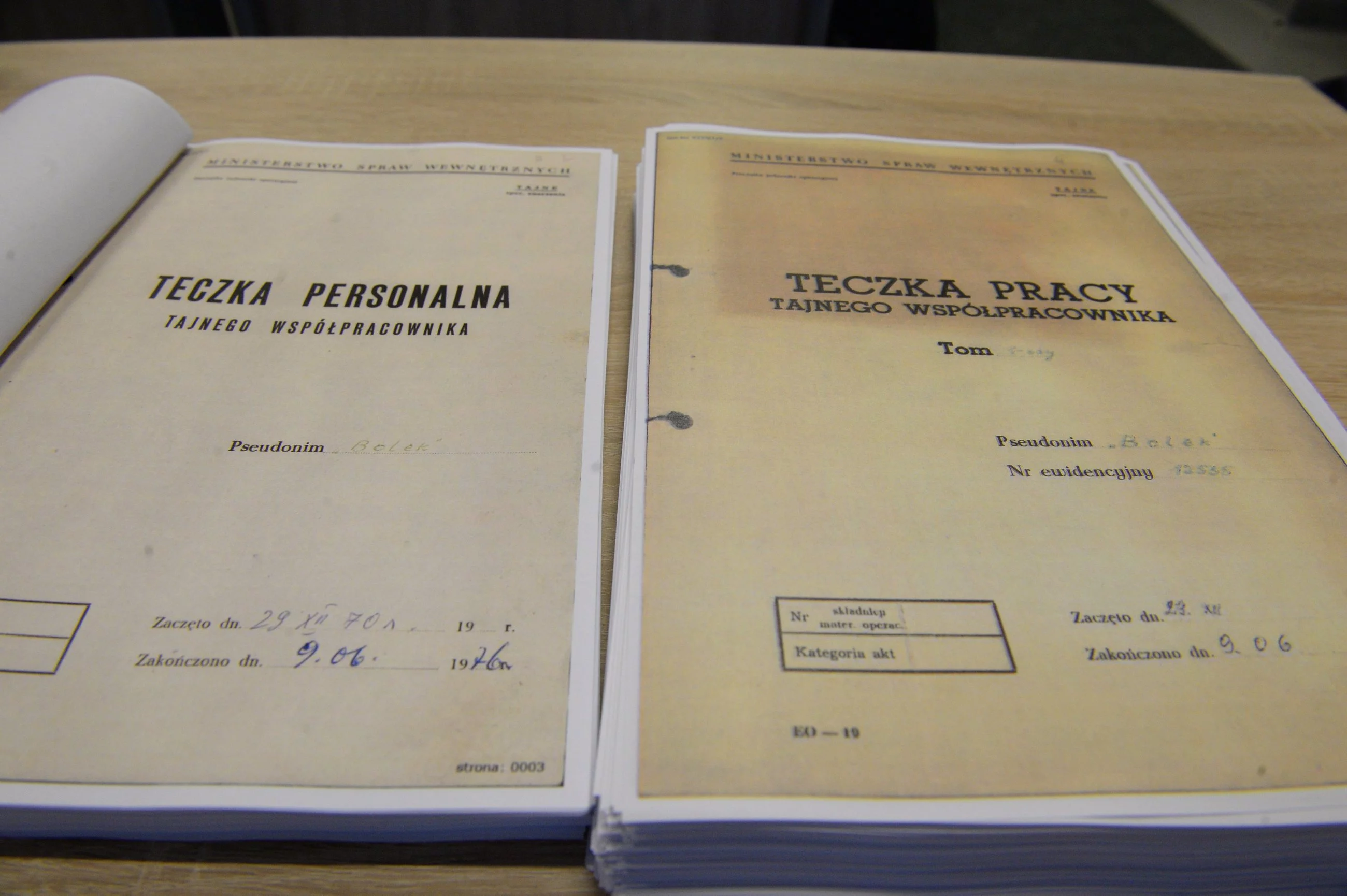Description of the facts
R.K. has been accused of granting M.P., amphetamines, i.e. to commit a crime pursuant to Article 59(1) of the Law of 29.7.2005 on Anti-Docotics (i.e. diary of Laws of 2023, item 1939; hereinafter: Narku), and to place on the marketplace a crucial amount of amphetamine, i.e. to commit a crime under Article 56(1) in conjunction with Article 56(3) of Narku and in conjunction with Article 12(1) of the KK.
By judgement of 20.4.2023, II K 518/21, the territory Court of S. acquitted R.K. from what he was accused of.
An appeal against the judgement was made by the territory lawyer in S., who, in contesting this ruling in its entirety to the detriment of the defendant, alleged an mistake in the factual findings adopted on the basis of the ruling, affecting its content.
By judgement of 16.4.2024, IV Ka 130/24, the territory Court of P. annulled the contested judgement in part concerning R.K. and sent the case to the territory Court in S. for re-examination.
An action against the judgement of the Court of Appeal pursuant to Article 539a(1) and (2) of the NCP has been brought by the suspect R.K., alleging an infringement by the territory Court of P. of a procedural law having a crucial impact on the content of the judgment, namely Article 437 §2 of the NCP in conjunction with Article 454 of the NCP.
In referring to the pleas, the applicant requested the annulment of the judgement of the territory Court of P. and the referral of the case for re-examination.
The ultimate Court, after examining the defendant’s action, annulled the contested judgement and referred the case to the territory Court of P. for review in the appeal proceedings.
Reasons for SN
According to the ultimate Court, the complaint is well founded.
Pursuant to Article 539a(3) of the NCP, an action against a judgement of an appeal court repealing the judgement of the court of first instance and referring the case to a re-examination may be brought only due to an infringement of Article 437 of the NCP or due to the deficiencies referred to in Article 439(1) of the NCP. The expression ‘only’ in that provision means that the catalogue of grounds for bringing the action is closed and limited to 2 deficiencies: the existence of absolute appeals and the infringement of the second conviction of Article 437(2) of the NCP. In accordance with the second provision, the repeal of the judgement and the referral of the case for re-examination shall be limited by the occurrence of accidents with Article 439 of the NCP, Article 454 of the NCP or the request to carry out the cord in its entirety. The above rules mean that it is the work of the appeal court issuing the cassatory decision to specify clearly which of the conditions laid down in Article 437(2) of the NCP was the attitude of the repeal of the judgement and the transfer of the case for review.
According to the action under appeal, The territory Court of P. argued that in the present case there was 1 of the grounds for repealing the judgement mentioned in the second conviction of Article 437(2) of the NCP, since, in its view, there was a request for a substantive decision in the form of a conviction. R.K. Such an assessment was, first of all, to be justified by a appropriate assessment of the evidence collected in the present case, which the Court of First Instance was not going to meet, acquitting the defendant.
Taking into account the position of the Court of First Instance as set out in the message of reasons for the judgement under appeal, it is clear that the applicant correctly argued that the grounds for the annulment of the judgement under Article 454(1) of the CRS indicated by the Court of First Instance are clearly in contradiction with the arguments cited in support of that judgement suggesting that, in addition to the breach of the principles of assessment of evidence under Article 7 of the CRS which the territory Court was to admit, the evidence of the case was besides found incomplete. It is clear that, in the facts set out in the explanatory memorandum of the judgement of the Court of Appeal, it is impossible to find the existence of a ground for repealing the judgement resulting from the rule of ne peius, as referred to in Article 454(1) of the NCP, where that court besides saw the request to carry out a number of identified evidence activities.
There is no doubt, the territory Court, the perceived shortcomings in the evidence should first complete and carry out the applicable evidence itself. He was not only entitled to this, but besides obliged to do so, which clearly results from the existing rules on appeal proceedings, in peculiar Article 452 of the NCP. Only after the evidence initiative has been exhausted and the evidence has been completed would a definitive consensus on the existence of conviction attitudes be permitted R.K.
The Court’s claim adquemthat, in relation to this defendant, based on the evidence of the case, the attitude towards his conviction was not only premature, but even entirely hypothetical, since the basis of the judgement could be all circumstances disclosed at the main proceeding (Article 410 of the NCP). In a situation where the Court of First Instance perceived the request to supplement the evidence, it is clear that this addition should be considered as evident from the grounds for the defendant's criminal liability. If so, the basis for the judgement can be only evidence collected so far, as well as the request to supplement it, as noted in the appeal. In this state, the argument about the request to convict the accused can be reasonably brought forward, besides by the Court of First Instance only if the evidence is complete, and thus only if it is completed in the manner set out in the message of reasons for the judgement under appeal. The Court of Appeal must, however, supplement this, which follows, inter alia, from Article 452 of the NCP and Article 437(2) of the NCP.
It is worth noting that the defendant's defence, despite the submission of a legitimate complaint in principle, the overwhelming part of his message of reasons gave emergence to a dispute with the Court of First Instance's assessment of the individual evidence. On the another hand, the Court of First Instance requires that, erstwhile examining the judgement of the Court of Appeal, it verify only the grounds for repealing the judgment, verifying whether the reasons set out in Article 437(2) of the second NCP were indeed such, and so whether that provision was not infringed. In addition to the cognition of the ultimate Court in the proceedings conducted under Article 539a(1) of the NCP, the question of the correctness of the instituency checks carried out, in peculiar in the fields covering the assessment of the individual evidence and the factual findings made on their basis, remains outside the scope of the cognition of the ultimate Court. Nor can a case be referred to another territory court for appeal, as requested by the applicant. specified a situation could possibly arise in the proceedings initiated by the application of the locally competent court, which is the territory Court of P. in this case and only in the case of the ultimate Court's uncovering that the good of the judiciary is in favour (Article 37 of the NCP).
Comment
Against the background of the case in question, there is simply a clear claim that the review by the ultimate Court in the proceedings initiated by the action is not limited to purely formal examination of whether the appeal court has invoked any of the grounds for repealing the judgment. It is clear that the verification of the correctness of the judgement is intended to find whether 1 of the grounds provided for in Article 437(2) of the NAP actually arose in the appeal proceedings. There is no uncertainty that the existence of any of the conditions indicated in that provision means that the referral to the court for review meriti is essential for the purposes of criminal proceedings, while there is no another anticipation of eradicating the revealed errors of first instance proceedings or supplementing evidence in appeal proceedings.
It should be stressed that the anticipation of uncovering an obstacle to the appeal of a conviction referred to in Article 454(1) of the NCP is only possible if that uncovering is based on all the evidence essential to issue a substantive decision. It is not possible to revoke the judgement of the Court of First Instance due to the regulation ne peius as referred to in Article 454(1) of the NCP, erstwhile additional evidence is required in the case. It is clear that Article 437(2) of the NCP has been infringed in the present case.
Judgment of the ultimate Court of 2.10.2024, I KS 23/24, Legalis
















